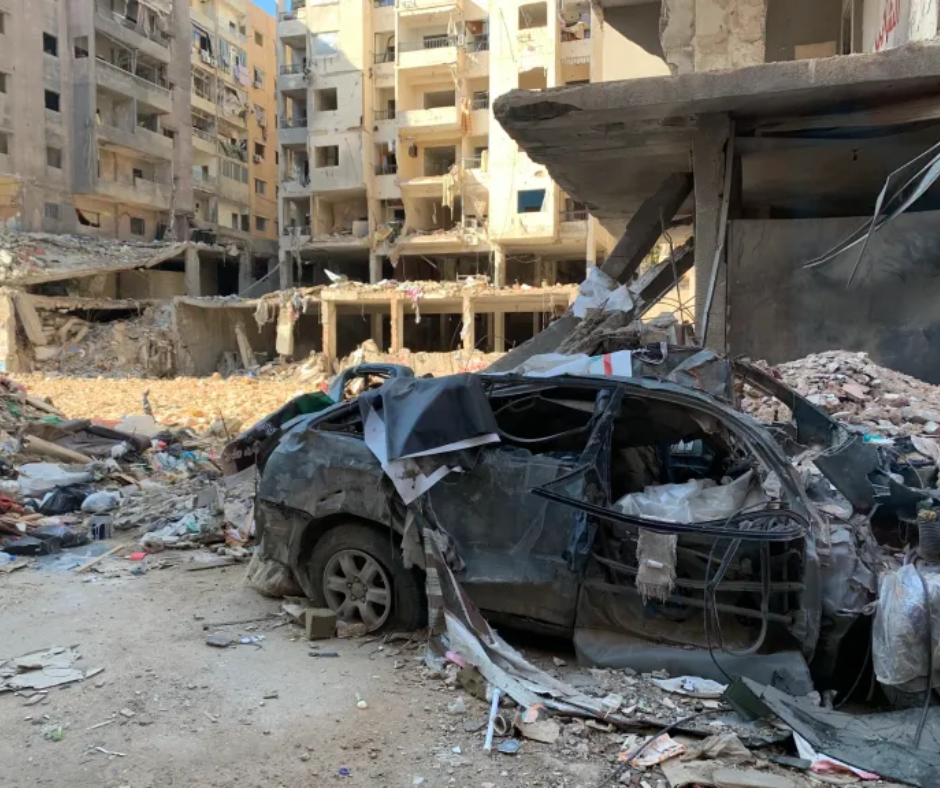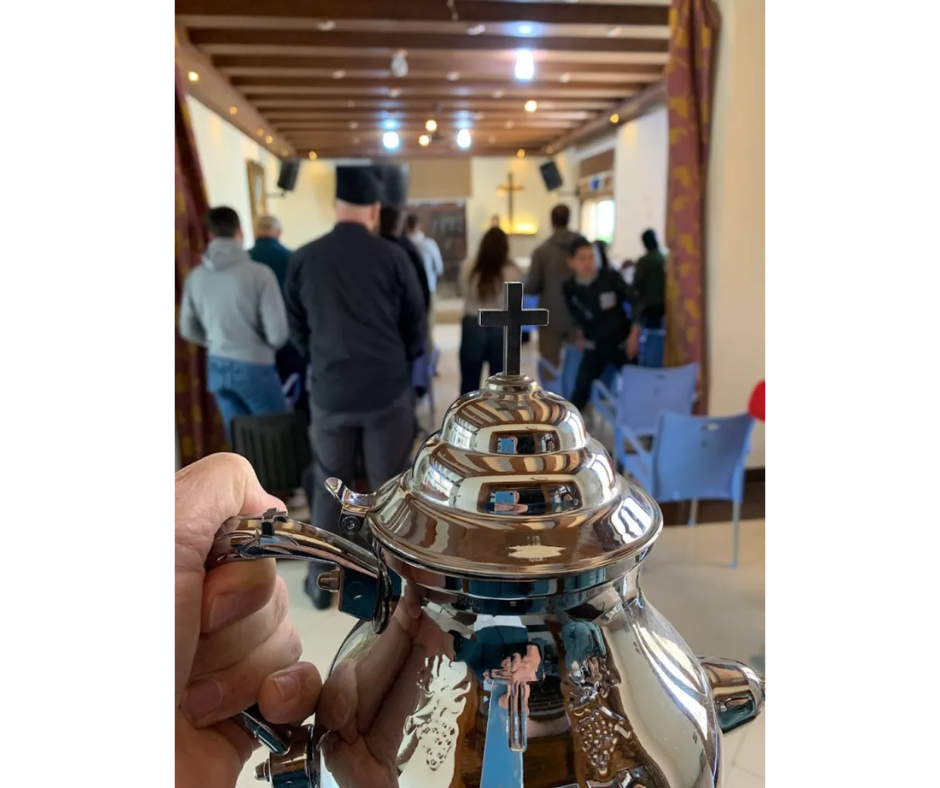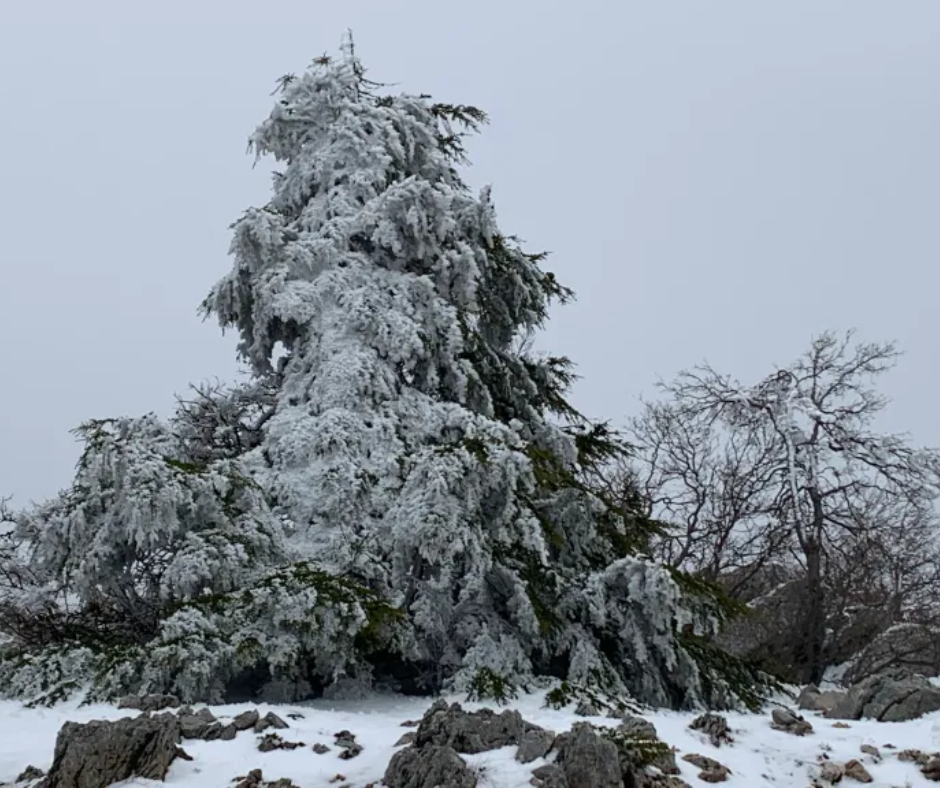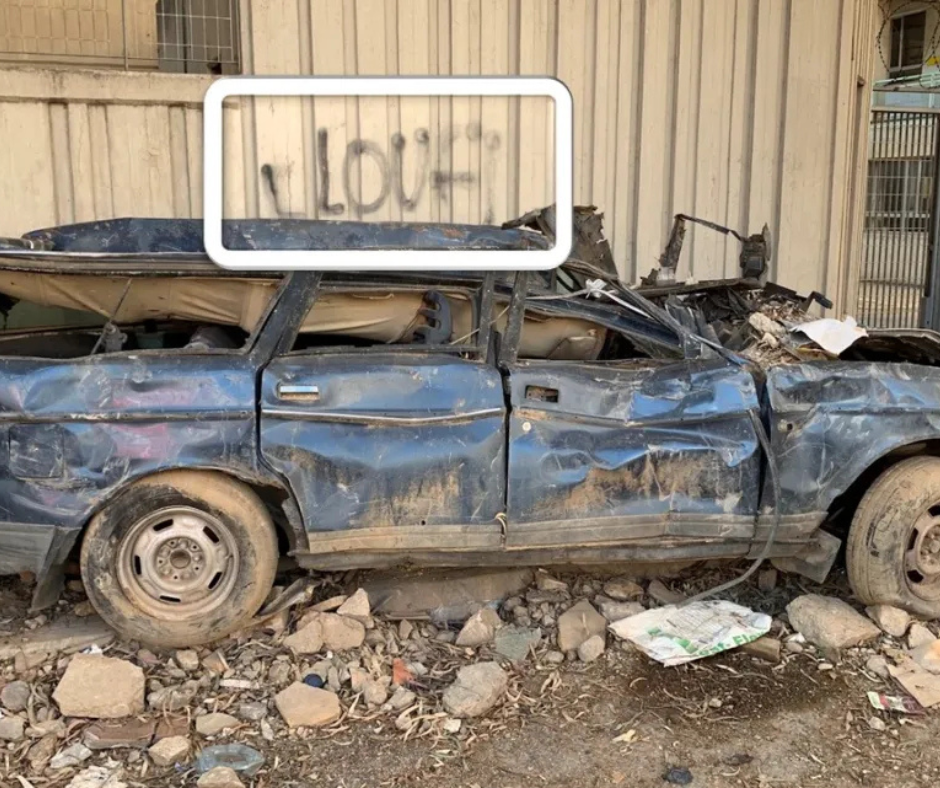1) Reframing faith in the context of conflict
It is time for the church to REFRAME our perceptions of war, chaos and uncertainties. The picture above was taken at the sight where Hassan Nazrallah was killed in 2024. Above one of the destroyed vehicles, someone painted the words “LOVE”. Once we understand that our Sovereign and Loving Father is painting pictures of redemption, we will find purpose and meaning in a season of suspicion and despair. The believers in Lebanon and Syria once again deeply ministered to our hearts. We understood the reality that for the Christians in these two nations, the cost of “painting pictures of redemption” will come at a great cost. And it does.
Traveling through Lebanon and Syria revealed more than we expected and, at times, exposed more than we were prepared for. It was glorious and heartbreaking at the same time, filled with emotional times of weeping and joyful times of laughing. We felt the deep sense of despair as we walked through the streets of Beirut and witnessed the destruction of Israeli bombs but sensed the unquenchable spirit of hope of those who follow Christ. Every challenge seemed to be REFRAMED into an opportunity and every difficulty a vessel to be used.
2) Bombs do not discriminate, neither should we

As we visited the site and saw the children playing in the rubble and women busy with their daily routines in a place once called home, we realized that many innocent people had to pay the price in a war of ideologies. The bombs did not discriminate. Hatred and revenge knows no colour, no ideology and no religion – only death. It did not seek only the “guilty” as dozens of bunker-busting bombs fell in a densely populated area. Everyone engaged in a daily routine of simply pursuing life was ripped from earth in a moment of time. Their homes became their graveyards.
We realized anew that we are consecrated to become indiscriminate grace releasers – to the good, the bad and the ugly – so that ALL will come to the full knowledge of a loving Saviour who did not come to judge, but came to seek and save the lost: Hezbollah in Haret Hreik, Sunnis in Beirut, Jews in Jerusalem, Gang members in Cape Town and souls that are lost in every place on earth.
3) We are called to the FRONTLINES, not the SIDELINES
We heard the testimonies of those in Syria who have been beaten up in front of their Churches, who face the reality, as converts from Islam, to face death on a daily basis and Pastors who understand the new realities of a radical Jihadist group taking control of a nation they love so deeply and a Saviour they serve so faithfully.
Unlike many western nations where believers often form their convictions from the sidelines, the Christians in this troubled region enter the frontlines of faith on a daily basis. In a season of searching, one Pastor after the other echoed the words that “This is our Time!” They have reframed the suffering into opportunities with an understanding that the darker the times, the brighter they shine.
4) HELPLESS does not mean HOPELESS
In our meetings with Syrian believers we realised anew that the future is very uncertain. It seemed like the current onslaught on Alawite Muslims, the previous support group of Bashar Al Asaad, might eventually turn to other minority groups as well, which will include the Kurdish, Druze and Christian communities. But HOPE remains the foundation of their activities. God has been faithful in 14 years of war – He will not leave them now.
For Lebanese believers the uncertainties of war produced new opportunities. In the midst of these uncertainties we joined our partners by sponsoring and reaching out to many in the refugee camps with supplies and practical assistance.
5) The collateral damage of war paves the way for REDEMPTION

The one Pastor from Damascus told us that his church has grown from 5 members to 160 members. The church they have is currently too small to accommodate all the members and they now have two services on a Sunday. They currently have a vision of building a House of Payer in Syria – not once things settle down, but in the midst of the spiritual battle.
In the Beqaa valley in Lebanon, home to more than 1 million Syrian refugees, the church has now grown in levels previously unheard of. When Israel started bombing the Shia quarters in Lebanon, many Muslims were displaced and had to flee their homes. The only people that welcomed them were Christians and soon they started attending churches. During one Sunday service we witnessed a number of displaced people, both from Syria and from within Lebanon, being welcomed into Church
6) Missions have moved from PREACHING to PRESENCE
7) Be prepared for God interruptions
We initially planned to meet the Syrian pastors in Lebanon but due to permits being refused we could only meet via Zoom. This proved to be equally precious with two Syrian leaders being able to join us “in flesh”. The timeslots we planned to spend with Syrian believers were not wasted though. We had the glorious privilege to spend time with a Kurdish house group, a ministry led by a team from China, distributing much needed help to refugees in the valley, and providing training for a group of teachers working amongst refugee children. We joined in meetings of reconciliation and were overwhelmed to witness how the Lord interrupted our program to restore relationships and intervene with His divine agenda. Not one second was lost in our change of schedule and every moment was divine.
8) Beauty will save the world

Richard Rohr says: “Christianity operates best by attraction. Just set the light on the lampstand and if it’s good, and if it’s real, and if it’s beautiful, people will come.” The Church on lampstand in Lebanon and Syria is the only hope for the region – a beauty worth pursuing.
But, make no mistake, Lebanon is also a beautiful country with beautiful sights and beautiful people. There exists a certain grace and poise in people broken by multiple wars that brought a new sense of purpose to our hearts. We fell in love the country and the people anew. Beauty will prevail!!

